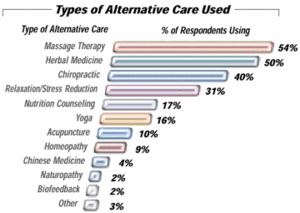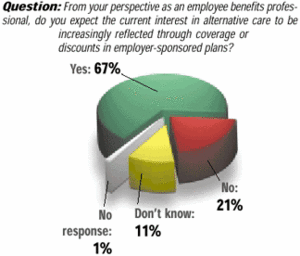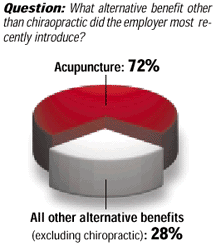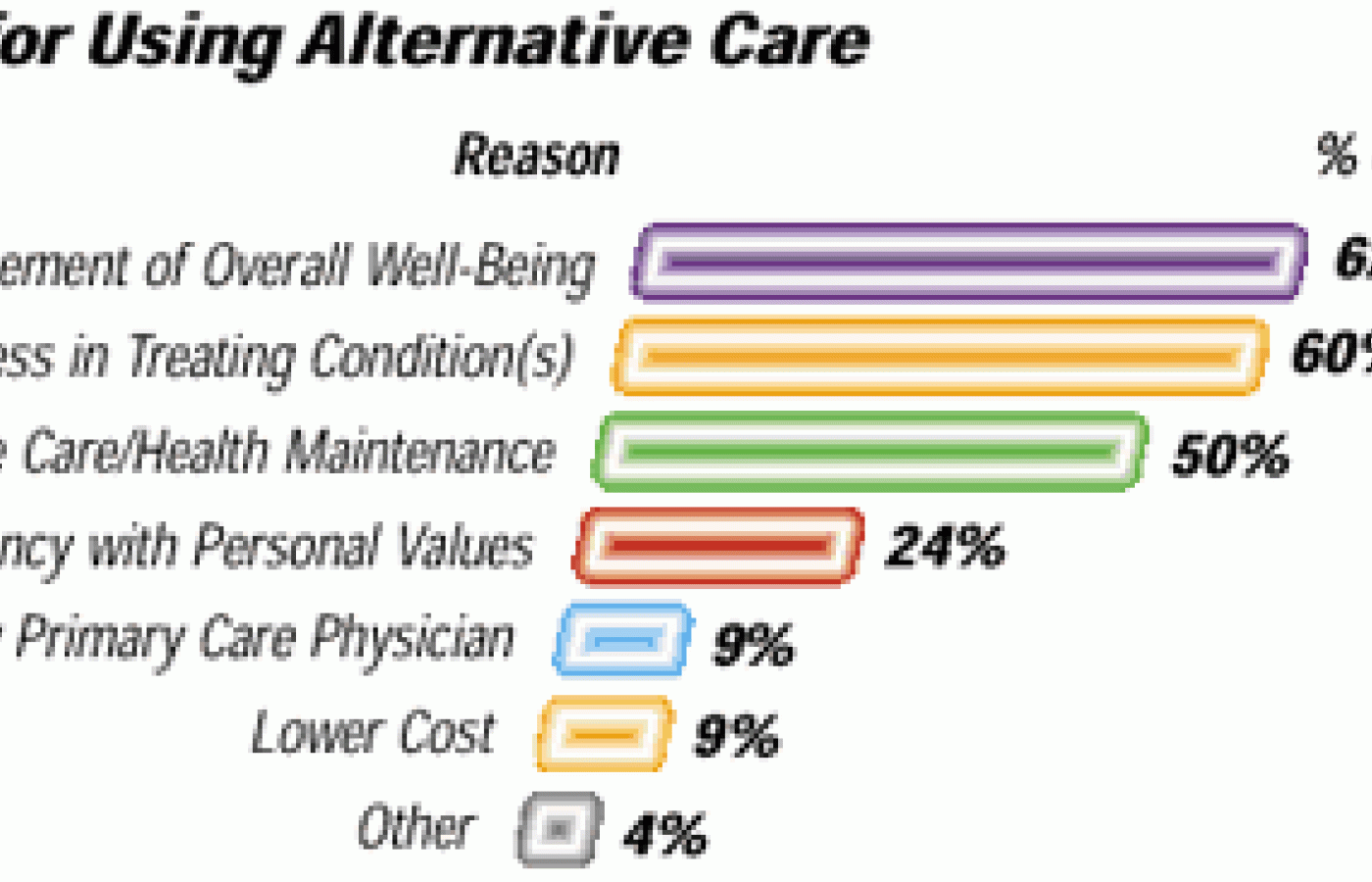The most important relationship I seek to nurture in the treatment room is the one a patient has with their own body. We live in a culture that teaches us to override pain, defer to outside authority, and push through discomfort. Patients often arrive hoping I can “fix” them, but the truth is, we can’t do the work for them. We can offer guidance, insight and support, but healing requires their full participation.
Greater Access to Alternative Care
Earlier this year, the International Society of Certified Employee Benefit Specialists (ISCEBS) sent a questionnaire to approximately half its membership regarding "non-traditional medical care." More than 1,700 individuals were surveyed, including employee benefit specialists, plan administrators, consultants and managed care providers.
A total of 534 respondents returned the survey, which was designed to find out more information about personal and corporate use and coverage of alternative care in the United States in Canada. Their responses, published as part of a larger report entitled Health Benefits for Alternative Medicine: Is There a Fit?, hold great promise for the utilization and inclusion of herbal medicine, acupuncture and other forms of alternative care among employee benefit plans.
The survey was divided into two parts. Part I questioned the respondents about their personal use of alternative care and their opinions about the direction of employer benefits; part II asked employers whether they offered any alternative care benefits; why (or why not) those benefits were offered; and opinions about the impact of alternative care on health plans. Among the survey's more important findings:
- Forty-five percent of all respondents reported using some method of alternative care in the past year. Herbal medicine (second), acupuncture (seventh) and Chinese medicine (ninth) all ranked among the ten most frequently used forms of care.

- Sixty-two percent of those surveyed said they used alternative care because of its "enhancement of overall well-being." Sixty percent chose alternative care because of its effectiveness in treating the condition for which that form of care was used.

- One-third (33%) of those who returned the survey said they would be willing to pay more toward employer-sponsored health care coverage if it included alternative care.

- More than two-thirds of all respondents sensed a movement toward increased employer offerings of benefits coverage for (or discounts on) alternative care.

Good Signs for the Future of Acupuncture
While acupuncture did not rank very highly in terms of its current use, data from the ISCEBS survey show that acupuncture is being implemented into many employer health plans, a trend expected to increase steadily over the next few years:
- Nineteen percent of employers who completed the survey offer one or more benefits for alternative care other than chiropractic. Of those employers who offer more than one benefit, acupuncture (75%) is the most common.

- Nearly half (46%) of the respondents expect employer-sponsored coverage for acupuncture to become as common within the next 10 years as coverage for chiropractic care is today. (According to the survey, 86% of all employers currently provide coverage for chiropractic care.)
- Over half (51%) of responding employers who offer alternative care benefits other than chiropractic have done so for five years or more. For 72% of responding employers who offer alternative care, acupuncture is the most recently introduced alternative benefit other than chiropractic.
Why Employers Do or Do Not Offer Alternative Care Benefits
The primary reason employers offer alternative care benefits, the survey found, was because employees asked for them. Thirty percent of employers cited requests from employees as the primary reason for introducing benefits for alternative care. Interestingly, 18% of employers admitted they did not know why they offered health benefits for alternative care; only three percent noted any potential for cost-savings.
The most frequently cited reason as to why employers did not offer alternative care was a lack of sufficient proof of effectiveness (42%), a figure that highlights the need for more clinical research for acupuncture, herbal remedies, and other forms of alternative medicine. Again, a substantial number of employers (18%) admitted they did not know why their company did not offer alternative care benefits.
Editor's note: An executive summary of Health Benefits for Alternative Medicine: Is There a Fit? is available online at www.ifebp.org. If you would like to comment on this article, please contact Acupuncture Today by fax (714-536-1482) or e-mail (editorial@acupuncturetoday.com). You are also encouraged to discuss this article on Acupuncture Today's online discussion forum at acupuncturetoday.com/forums.



